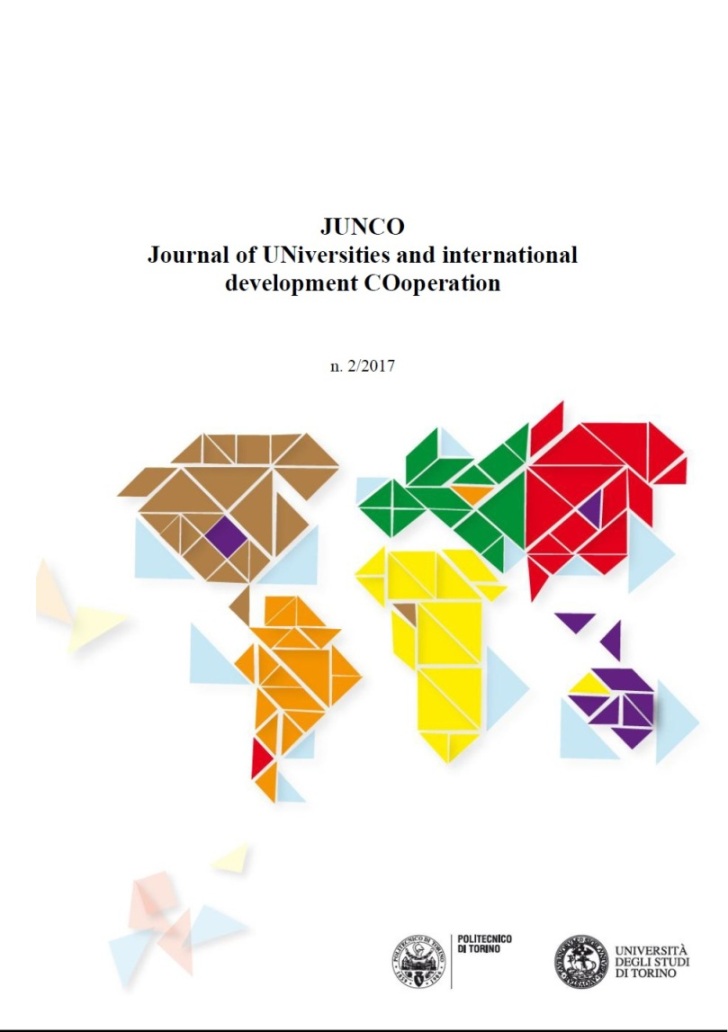ABOUT THE LONG-TIME COOPERATION BETWEEN TORINO, MADAGASCAR AND COMOROS
DOI:
https://doi.org/10.13135/2531-8772/3296Abstract
The long-time cooperation history between Torino, Madagascar and Comoros began in 2008 with the project SCORE (“Supporting Cooperation for Research and Education”; Edulink Program ACP Contract RPR 118 # 36), run by DBIOS in co-operation with the University of the Comoros and the Malagasy Universities of Mahajanga and Antananarivo. The project allowed the implementation of a joint International Master degree on “Sustainable Development and Conservation of Biodiversity”, aimed at strengthening students’ capacity in surveying, monitoring and managing natural habitats.
One year later, in 2009, the University of Torino (DBIOS together with the Department of Agriculture, Forestry and Food Science, DISAFA) cooperate with the University of the Comoros and three Malagasy partners, i. e. the Universities of Antananarivo and of Tamatave and G.E.R.P. (an NGO: Groupe d’Etude et Recherche sur les Primates de Madagascar) and started Project BIRD (Biodiversity Integration And Rural Development”, ACP Science & Technology FED/2009/217077). This project contributed to further improve the professional skills and training of the Masters degree students, but also promoted capacity building at the social level, by involving local village authorities. The project supported the development and implementation of action plans on a local basis and fostered the socioeconomic development of communities. One of its most important results was to develop research field stations acting as multipurpose centres where researchers were hosted, where training and dissemination events took place and where organizational meetings of the local communities were held. We thank Prof. Giancarlo Bounous, now retired, for his enthusiastic coordination and his contribution to the many rural development actions carried on during BIRD project.
In 2013, DBIOS and DISAFA together with its Comorian and Malagasy Partners started working on Project EGALE (Gathering universities for quality in education; Edulink II Program ACP, Contract FED/2013/320-117). The project: i) strengthened local capacities in taking part to definition and implementation of national and regional agriculture and food security strategic plans by promoting a sustainable use of local products; ii) enhanced networking and expertise exchange among EU and ACP countries (such as the Comoros); iii) tailor ACP educational offers on local labour market requirements, as well as on local developmental priorities and international quality standards.
In this Junco issue the proceedings of the International Scientific Congress on “Food security and Agrobiodiversity in Madagascar and Comoros”, held on May 25-27, 2016 in Toamasina, are reported. The congress was organized and financed by the project EGALE (“Gathering Universities for Quality in Education”, ACP-EU Cooperation Programme in Higher Education EDULINK II, FED/2013/320-117) and had a great impact on the scientific community and stakeholders in Madagascar. About one hundred researchers, students and professionals participated in the event, that was organized by the “Institut Supérieur de Sciences, Environnement et Développement Durable” (ISSEDD – University of Toamasina, Madagascar), thanks to a young, enthusiastic staff.
Several papers on food security were presented with a multi-disciplinary approach: agrobiodiversity and food issues were addressed through poster and oral presentations selected for their high scientific quality and their significant contribution to food security and natural resources sustainable management.
13 malagasy students presented the posters (reported in this issue) with the main results obtained by their master thesis work in Ethology - “International Master in Sustainable Biodiversity Management and Conservation”, a 2 years Master Joint title between the University of Torino and the University of Mahajanga.


